Fool’s Mate: How to Play Chess’ Quickest Mate
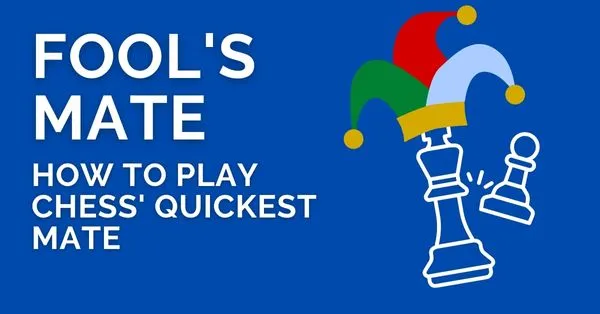
Do you want to learn how to win a chess game in just two moves? Sounds impossible, right? Well, it’s not. There is a rare but possible way to achieve the fastest checkmate in chess, known as the Fool’s Mate.
In this article, we will take a look at how to play this brilliant (or foolish) mate and surprise your opponent.
The Fool’s Mate is also called the Two-Move Checkmate or the Two-Move Fool’s Mate. It is a checkmate that occurs after only two moves by each player. It is the shortest possible checkmate in chess, and it can only happen if both players cooperate (or rather if one player cooperates and the other player takes advantage of it).
For example, let’s take a look at a game played between two players Ethan and Noah, and how Fool’s mate occurred on the board.
Example of Fool’s Mate
Ethan is playing white and Noah is playing black. Ethan is an absolute beginner to the game while Noah has gained experience by playing chess for a while now. Jackson is an accomplished player and is observing the game. The game ends with the fool’s mate giving victory to Noah.
Ethan (thinking to himself): All right, let’s see. Let’s just start with a pawn move. I have seen Jackson start with pawns. (moves g2-g4)

Noah (thinking to himself): Hmm, looks like Ethan is going for an aggressive opening. Well, I’ll just respond with a pawn move of my own. I heard that it’s a good idea to control the center with pawns, so I’ll move my e-pawn forward two spaces. (moves e7-e5)
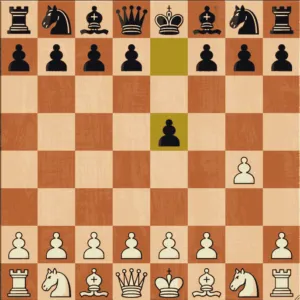
Jackson: Ethan has just played a pawn move that doesn’t control the center. However, he has also weakened his king’s position by leaving a diagonal open towards it.
Ethan now has to be careful about his King’s safety. Noah has responded by controlling the center with his e-pawn, which is a good response.
Ethan (thinking to himself): Okay, I feel a little unsafe with my pawn on g4. I feel like there is no protection for it. I better defend it. (moves f2-f3)
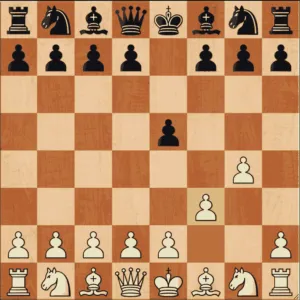
Noah (thinking to himself): Ethan’s move is defending his pawn on g4, However that move doesn’t get a piece out. So what should I do? Wait a minute! Ethan’s king is open. I’m sure I can play this and the game’s over. (moves Qh4#)
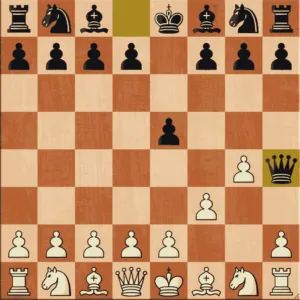
Jackson: Ethan exposed his king too much and paid the price for it. Always make sure to evaluate the consequences of your move before you play the move on the board.
Result
Ethan (thinking to himself): What?! Noah just checkmated me in two moves? I can’t believe it!
Noah (thinking to himself): Haha, that was a quick game. I guess Ethan has a lot to learn about chess.
Jackson: And just like that, the game is over! Noah has executed the fool’s mate, the shortest possible checkmate in chess, and has won the game in only two moves. This is a good reminder that even beginners should be careful about leaving their king exposed to attacks, especially in the opening.
Fool’s Mate in Theory
The Fool’s Mate involves a very bad opening play by a player, who moves his f-pawn and g-pawn forward, exposing his king to a diagonal attack by the queen. Let’s take a look at a move order on how black can get checkmated in 3 moves.
Here is how it looks on the board:
1. e4 f6
2. Nc3 g5
3. Qh5#
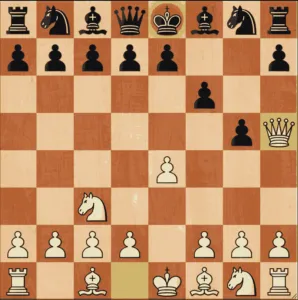
As you can see, Black’s king is trapped by his pawns and has no escape from White’s queen. This is a very embarrassing way to lose a chess game, and it is unlikely to happen in a serious match between experienced players. However, it can happen if White is very careless or inexperienced, or if he tries to play a joke on White and ends up being the fool himself.
The Fool’s Mate is not the only way to achieve a quick checkmate in chess. There are other ways to win in three or four moves, such as the Scholar’s Mate or the Legal’s Mate. These are also rare and require mistakes by both players, but they are more common than the Fool’s Mate.
Checkmate in 2 Moves:
If you want to avoid being checkmated in two moves, here are some tips…
- Don’t move your f-pawn or g-pawn on your first move. This weakens your king’s position and exposes it to attacks.
- Don’t leave your king unprotected by moving too many pawns or pieces in the opening. Develop your pieces and castle your king as soon as possible.
- Don’t underestimate your opponent or try to trick them with silly moves. Play seriously and respect your opponent’s skills.
- Don’t be afraid of losing. Chess is a game of learning and improving. Even if you lose quickly, you can always analyze your mistakes and try again.
You also might like 3 Hardest Mate-in-4 Ever, 5 Hardest Mate-in-2 Ever as well as 5 Hardest Mate-in-3 Ever.




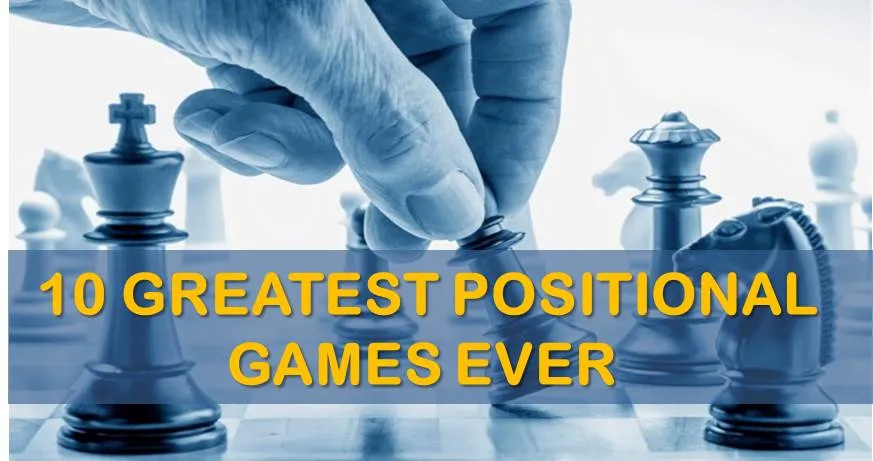
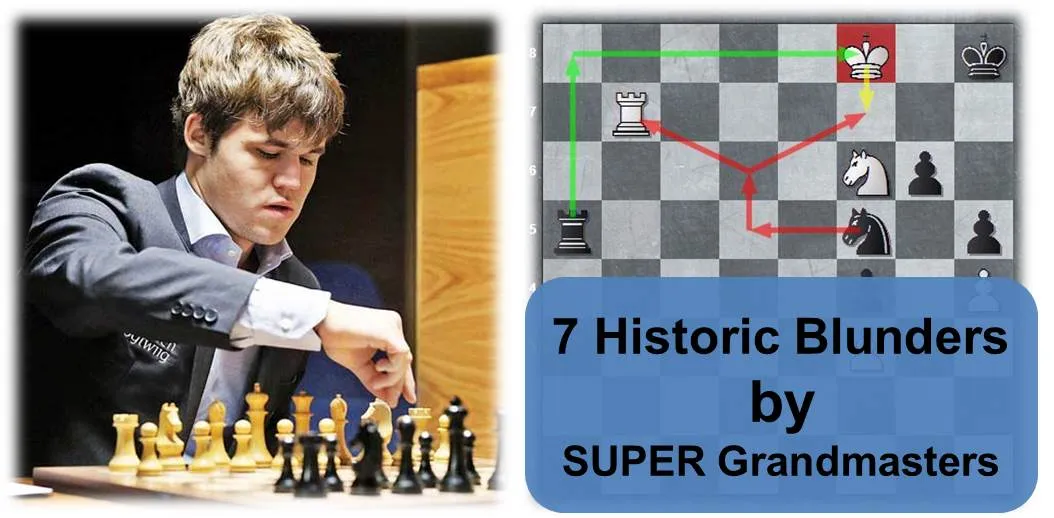




Comments: